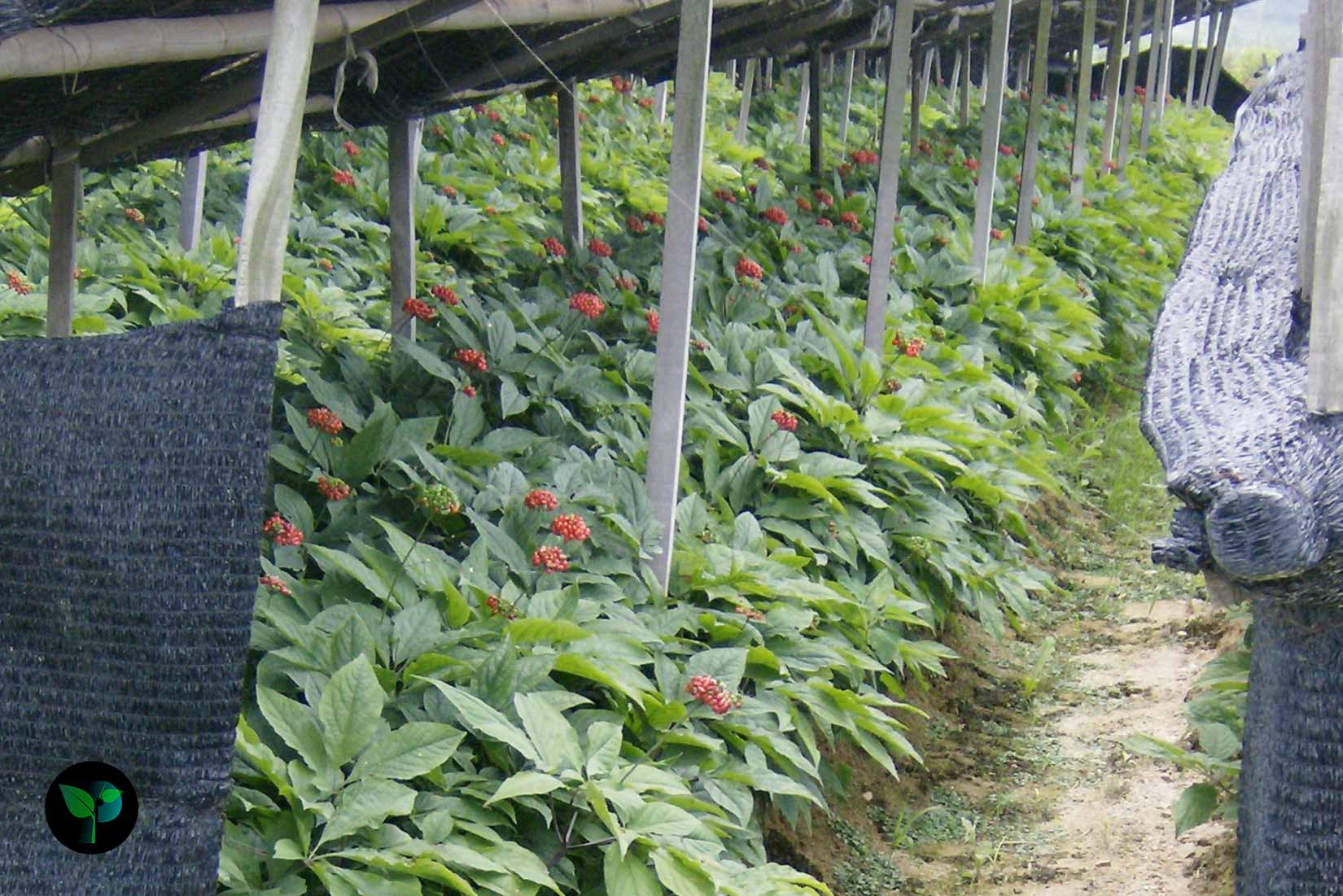For various reasons, you may prefer to use herbal remedies instead of chemical drugs. Herbal remedies have indeed been available to humans since ancient times, but it is important to know how to use them and how much to use them to improve a disease. Stay with Plants Folder to give you information about the ginseng plant and its healing properties in this post, which is a summary of scientific research in the field of botany and traditional medicine.
History and Origin of Plant
Ginseng, with the scientific name Panax ginseng, is a native plant of East Asia and North America. This plant, with a root diameter of 2 centimeters and a length of 7 centimeters, was once so valuable that only emperors had the right to collect it. it is very slow-growing and begins to flower after 4 years. This plant has a yellow to brown and brown color range.

Properties and Contraindications
This plant has a wide variety of properties and is naturally very beneficial for health, so much so that it is used in China as a way to increase energy and treat some diseases. In the following post, we will discuss some of its most important properties. Stay tuned:
Strengthening the immune system
In the human body, there are some immune cells called lymphocytes and macrophages. This plant increases these cells. It also increases the production and function of antibodies and killer factors against infectious agents, and as a result, it increases the immune system.
Balancing the hormonal system
We know that the level of hormones being regulated has a great effect on reducing fatigue and increasing our energy levels. It can reduce the levels of some hormones such as the stress hormone cortisol and instead increase positive hormones such as adrenaline and serotonin.
Regulating blood sugar levels
One of the amazing effects of this plant on the body is helping to regulate blood sugar levels. Interesting, isn’t it? You ask how? This plant helps regulate blood sugar levels in the body by increasing insulin sensitivity and reducing insulin resistance, controlling glucose levels, affecting enzyme activity, and reducing inflammation. Remember that this plant alone cannot cure diabetes, but its consumption is considered one of the complementary factors of type 2 diabetes medication.
Plants Folder always recommends consulting a specialist doctor in special cases.
Preventing premature aging
This plant has been used in traditional Asian medicine, especially traditional Chinese medicine, to strengthen the immune system and increase lifespan. It has strong antioxidant properties, affects the functioning of the nervous system, and reduces oxidative stress, thus helping to prevent premature aging.
Who should not use ginseng?
People with blood diseases
People with blood diseases such as hemophilia and porphyria, people with heart disease, sleep problems, and immune diseases are advised not to use this plant.
Ginseng and caffeine
We said that ginseng improves the immune system. Caffeine is a stimulant of the nervous system and may increase your nervous stimulation. Research has shown that if ginseng is used simultaneously with caffeine, it may lead to increased heart rate and increased blood pressure. Therefore, their consumption together is not recommended.
Recommended doses
Raw ginseng root: 1 to 2 grams per day
Ginseng supplement: 200 to 400 milligrams per day
Of course, doctors also consider daily consumption of up to 3 grams of this plant to be safe for healthy adults. The best time to take its tablets is with food to prevent side effects.
How to consume
it is available in several different forms, such as fresh, dried, powdered, extract, and tablets. The method of consuming ginseng may be as follows:
- Consuming fresh plant: You can wash and cut the fresh ginseng root. Then you can consume it raw or as ginseng tea. To make ginseng tea, chop the root and add it to boiling water and let it boil for about 10-15 minutes. Then strain the water and you can sweeten it to your liking.
- Consuming dried plant: You can get dried ginseng root divided or powdered. Usually, the daily intake is 1 to 2 grams of dried ginseng. You can consume it as an additive to foods, mixed with water, milk, or other liquids.
- Consuming ginseng in tablets: Ginseng is also available in ready-made tablets. Usually, the instructions for taking each tablet are specified on its packaging. The usual recommendation for taking ginseng tablets is to follow the manufacturer’s instructions and consult a doctor.
- Consuming ginseng extract: Ginseng extract may be available in liquid or capsule form. The instructions for taking each type of extract may vary depending on the manufacturer. Therefore, it is important to check the consumption instructions from the product packaging or the best method of consumption with your doctor.
It is important to consult with your doctor before taking ginseng, as they may determine the best method of intake based on your condition and other factors. It is also important to follow the consumption instructions and restrictions that are set by the manufacturer or your doctor.
Here are some additional safety tips
If you are pregnant, breastfeeding, or have any health conditions, talk to your doctor before taking this plant.
- Start with a low dose and gradually increase it over time to see how your body reacts.
- Stop taking this if you experience any side effects, such as anxiety, insomnia, or headache.
It is a safe and effective herb for many people, but it is important to be aware of the potential risks and to take it as directed.
Can I Boil Ginseng and Drink It?
Is It Ok To Take Ginseng Everyday?



Leave a Reply